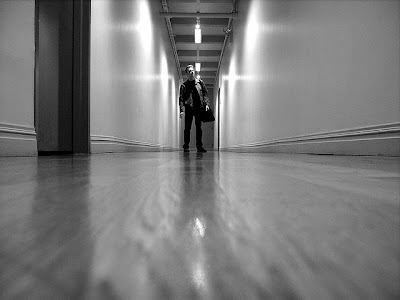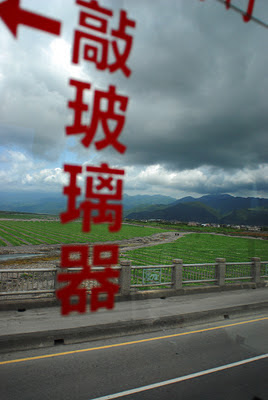From Bujinkan Santa Monica by Michael Glenn
 |
| Asakusa photo by kalcul |
When I was in my twenties, I used to spar with some very large guys. I often lost because of their size and strength advantage. When they locked in on me with their strongholds I would feel desperate and trapped. Then I would instinctively claw and struggle to no avail.
Now I don't have that problem even though I am older and not as strong. In my training I developed another type of strength that Hatsumi Sensei described in one class as 臨機応変 rinkiōhen. This is adapting oneself to the requirements of the moment. Musicians know this feeling as improvisation or playing it by ear.
In this class Hatsumi Sensei was working on Suwari gata. He did one henka on Nagato Sensei where he kicked him in the neck three times before taking his arm.
The same kata demonstrated on Senno Sensei was very different. Soke was able to trap both arms instantly to the point of breaking. He even remarked at how fragile the human body is.
Soke said that if he tried to do to Nagato the same technique he just did on Senno, it would not work because Nagato's arms are as big as Senno's legs.
臨機応変 rinkiōhen is a manner that shows flexibility in response to what the situation demands. In this case, to be able to take one of Nagato's arms required three kicks to the throat to soften him up.
In western culture we have the concept of Ad hoc. It is Latin that reads "for this." As in "for this" moment or situation. It may be a response for a problem or endeavor that only applies to this specific situation and probably will not work in another moment.
Sensei described 臨機応変 rinkiōhen as an aspect of kyojitsu tenkan. If you are resourceful in this moment of truth and falsehood you will find the answer you seek.
Hatsumi Sensei says you must adjust your technique so that you are using the strong points against the weaknesses of your opponent. This could be your own strong points, or the strong points of the technique, or, as I learned recently, the extremely powerful and strong points that are kyusho present in the moment of the kukan. The results I've gotten from this have felt almost supernatural.
So 臨機応変 rinkiōhen may be an old expression but one that we can understand through kyojitsu when we constantly change and adapt to whatever comes up in our moments of reality.



